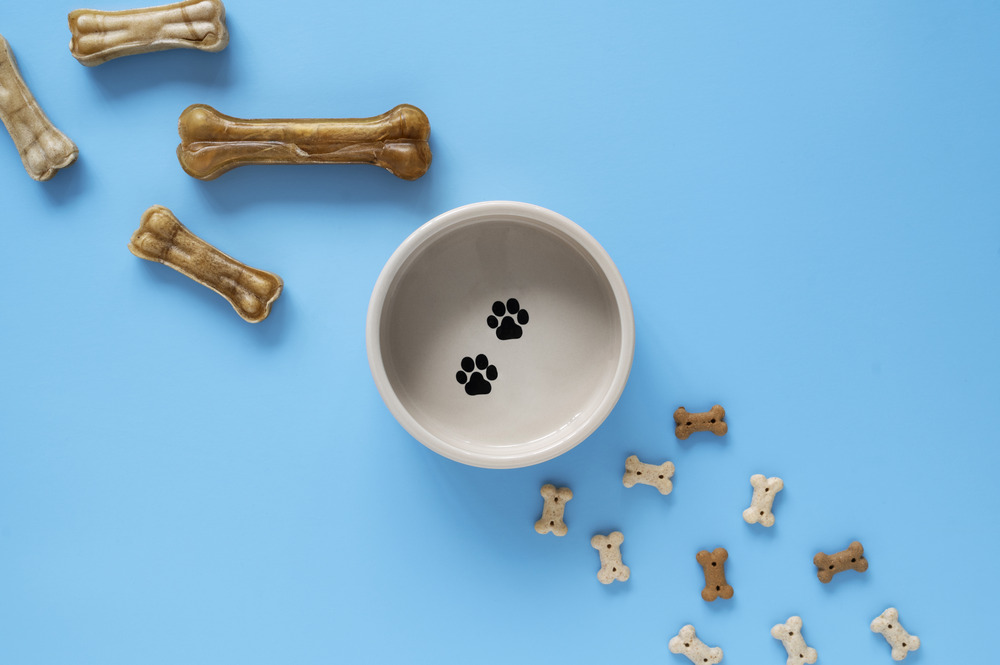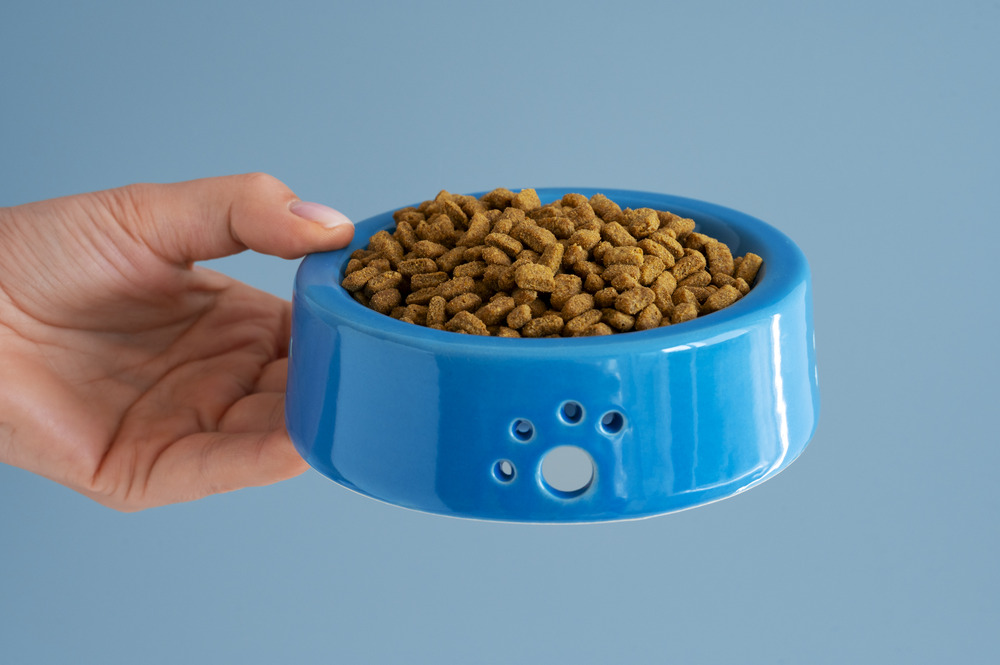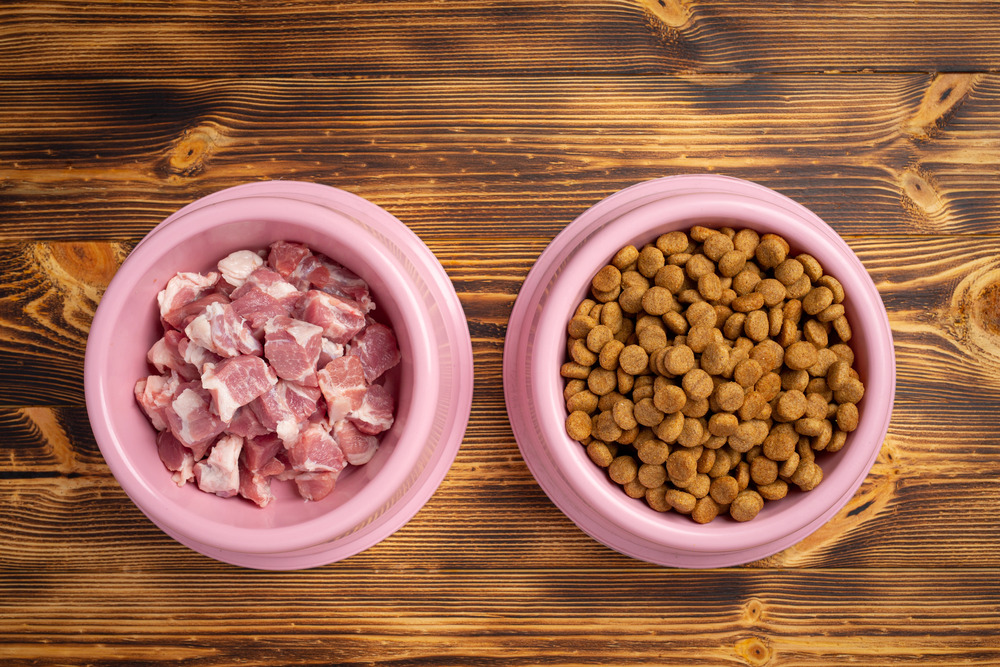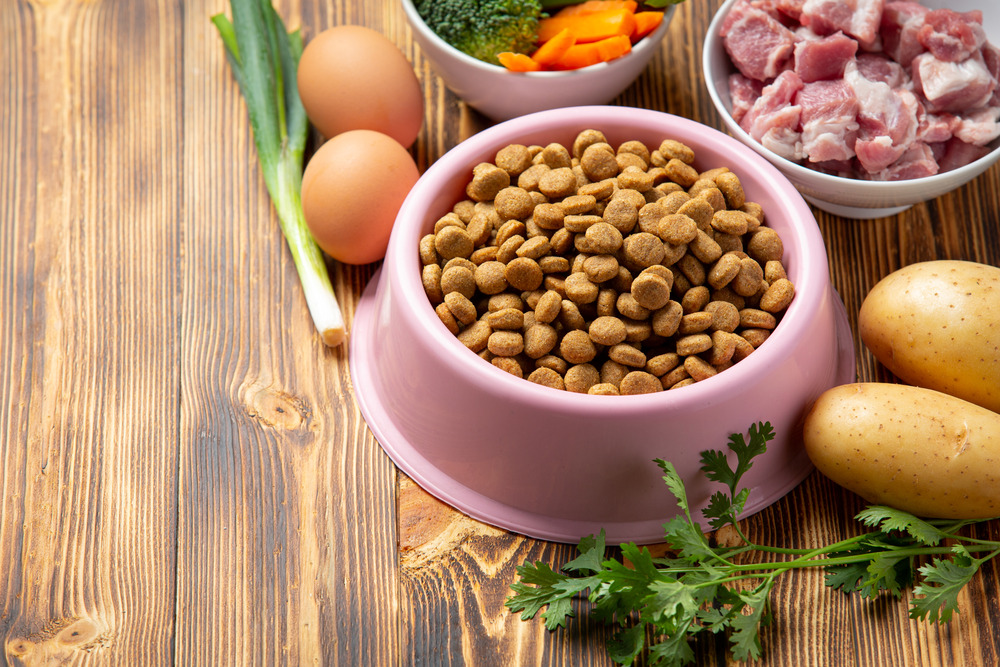When it comes to our furry friends, ensuring they have a balanced and nutritious diet is crucial for their overall health and happiness. Just like humans, pets require a variety of nutrients to thrive, and understanding their dietary needs can make a significant difference in their quality of life. In this guide, we will explore the essentials of pet nutrition, backed by rich statistics and clear tables, to help you make informed choices for your beloved companions. 🐾

Understanding Pet Nutrition
Pet nutrition is not just about feeding your pet; it’s about providing them with the right balance of proteins, fats, carbohydrates, vitamins, and minerals. According to the Association for Pet Obesity Prevention, approximately 60% of dogs and 56% of cats in the United States are classified as overweight or obese. This alarming statistic highlights the importance of proper nutrition and portion control.
Key Nutritional Components
- Proteins: Essential for growth, maintenance, and repair of tissues.
- Fats: Provide energy and support cell structure.
- Carbohydrates: Offer a source of energy and aid in digestion.
- Vitamins and Minerals: Crucial for various bodily functions and overall health.
To help you understand the nutritional needs of your pets better, let’s take a look at the following table that outlines the recommended daily intake of these nutrients based on pet size and type.
| Nutrient | Small Dogs (up to 20 lbs) | Medium Dogs (21-50 lbs) | Large Dogs (51+ lbs) | Cats (All Sizes) |
|---|---|---|---|---|
| Protein | 18-25% | 18-25% | 18-25% | 26-30% |
| Fat | 8-15% | 8-15% | 8-15% | 9-15% |
| Carbohydrates | 30-50% | 30-50% | 30-50% | 30-50% |
| Fiber | 2-5% | 2-5% | 2-5% | 2-5% |
The Importance of Quality Ingredients
When selecting pet food, it’s essential to choose high-quality ingredients. Look for brands that prioritize whole foods and avoid fillers like corn and soy. According to a survey by the American Pet Products Association, 68% of pet owners consider the quality of ingredients when purchasing pet food.
Common Misconceptions About Pet Diets
Many pet owners believe that all pet foods are created equal, but this is far from the truth. Here are some common misconceptions:
- Myth: Grain-free diets are always better.
-
Fact: While some pets may have grain allergies, most pets can digest grains without issues. Consult your vet for personalized advice.
-
Myth: Dogs are carnivores and should only eat meat.
- Fact: Dogs are omnivores and can benefit from a balanced diet that includes vegetables and grains.
Homemade vs. Commercial Pet Food
The debate between homemade and commercial pet food is ongoing. Each option has its pros and cons. Here’s a quick comparison:
| Aspect | Homemade Food | Commercial Food |
|---|---|---|
| Control over ingredients | High | Variable |
| Nutritional balance | Requires careful planning | Formulated for balanced nutrition |
| Cost | Can be expensive | Generally more affordable |
| Time investment | High (preparation and cooking) | Low (ready to serve) |
Tips for Transitioning Your Pet’s Diet
If you decide to change your pet’s diet, it’s essential to do so gradually. A sudden change can lead to digestive upset. Here’s a simple transition plan:
- Days 1-3: Mix 25% new food with 75% old food.
- Days 4-6: Mix 50% new food with 50% old food.
- Days 7-10: Mix 75% new food with 25% old food.
- Day 11 onward: 100% new food.
The Role of Supplements
While a balanced diet should provide most of the nutrients your pet needs, some pets may benefit from supplements. Common supplements include:
- Omega-3 Fatty Acids: Great for skin and coat health.
- Probiotics: Support digestive health.
- Multivitamins: Fill in any nutritional gaps.
Always consult your veterinarian before introducing any supplements to your pet’s diet.
Conclusion
Understanding pet nutrition is vital for ensuring your furry friends lead healthy and happy lives. By focusing on high-quality ingredients, maintaining a balanced diet, and being aware of your pet’s specific needs, you can make informed decisions that will benefit their health in the long run. For more information on pet nutrition, you can visit PetMD or The American Kennel Club.
Remember, a well-nourished pet is a happy pet! 🐶🐱✨




